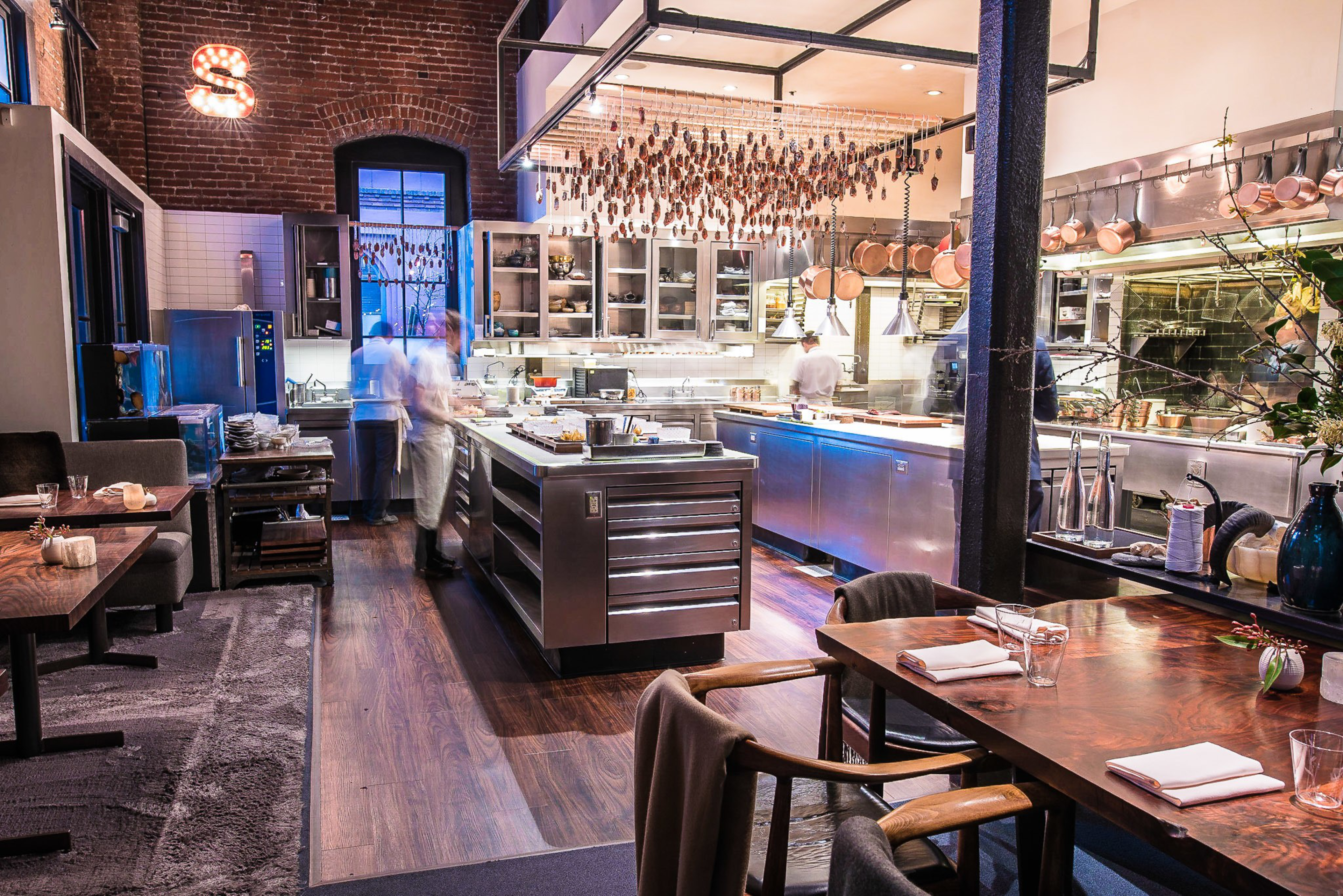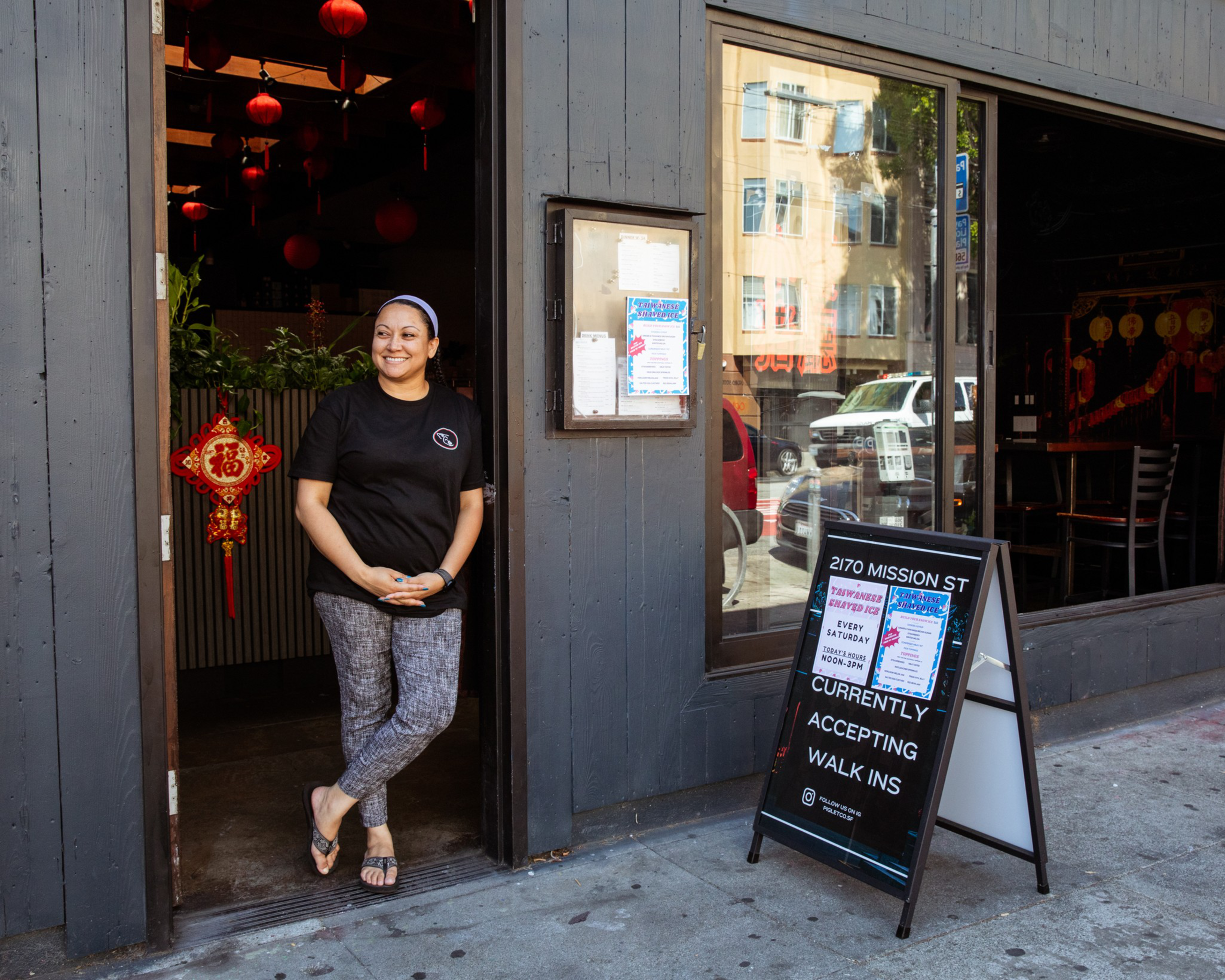In late September, three-Michelin-starred Healdsburg restaurant SingleThread posted a striking image (opens in new tab) to Instagram of a green cabbage freckled with luminous water droplets. Was it a new dish? Or perhaps a new cabbage-based menu from the farm-to-table restaurant celebrated as one of the best in the world (opens in new tab)?
In reality, it was an announcement of a victor in the ongoing war over reservations (opens in new tab). “Next Tuesday, October 1st we’ll be releasing bookings for the month of November through our new reservation platform, OpenTable,” the caption read. “If you have any questions about our transition from Tock to OpenTable please do not hesitate to reach out to us.”
To the average diner, one restaurant’s decision to change reservation platforms might seem inconsequential. But SingleThread isn’t alone in defecting from Tock or fellow “cool restaurants only” reservation app Resy and finding a new home on the oldest site of them all, OpenTable.
In the past year, a growing list of high-profile Bay Area restaurants — from Michelin-starred Commis, Saison, Angler, and Nisei to trendy newcomers Abacá, Piglet & Co, Jo’s Modern Thai, Four Kings, and Bodega — have moved to the online reservation pioneer. The return to OpenTable represents a shocking reversal for a platform that many in the industry had all but written off, a victim of lackluster tech, high prices, and weak customer service.

When it launched in 1998, San Francisco-based OpenTable facilitated the transition from pen and paper to digital reservation-taking. It still maintains the largest share of the market, with a roster of 60,000 restaurants in 80 countries. In the past 10 years, however, it has struggled to maintain its edge with the highest echelon of restaurants, primarily due to the rise of competitors Resy and Tock, both owned by American Express.
In addition to undercutting OpenTable’s per-diner fee, Resy gained steam through the social cachet of two of its founders — Ben Leventhal, co-founder of Eater.com, and entrepreneur–influencer Gary Vaynerchuk — and became the reservation platform of choice for actually cool restaurants, the kind at which you had to fight to get a table. Resy’s acquisition by AmEx in 2019 and the subsequent acquisition of fine-dining-focused Tock (whose founder, Nick Kokonas, once trolled OpenTable as a “dinosaur (opens in new tab)”) only fueled the fire.
But the recent migration back to OpenTable shows that the OG app isn’t ready to tap out. The company has launched an aggressive campaign to recruit the kind of accolade-winning restaurants that have been Resy and Tock’s primary customers. OpenTable COO Amy Wei said the company has worked to improve its product, introducing more than 50 features and improving customer service since the pandemic, while getting back to basics: most crucially, helping restaurants get diners through their doors.
“It’s not our job to be cool — the restaurants are cool,” Wei said. “We care more about advocating for the industry, being in places that matter, and supporting causes than being the coolest kid on the block.”
Old platform, new tricks
Chefs and restaurant managers who’ve recently transitioned to OpenTable say there’s no single reason they’re being drawn back to the platform. But as restaurants struggle against the rising cost of labor and ingredients, access to OpenTable’s massive user base — the company says it seats 1.7 billion diners a year — has won out over other considerations.
“The restaurant industry in San Francisco — it’s a different world than it was, and it’s not going back,” said Victoria Levi Woolley, director of partnerships and marketing at Saison Hospitality, which in the past year transitioned both its restaurants in the city, one-Michelin-starred Angler and two-starred Saison, back to OpenTable. “We are very lucky to be successful, but we can’t take that for granted, and access to a broader audience is not something that we can snub our nose at.”

Tables at Saison were previously bookable on Tock, which Woolley described as the default choice for fine-dining restaurants. But OpenTable’s new Icons program (opens in new tab), a curated list of top restaurants shown prominently on the company’s website and app, convinced management to switch.
Chef Francis Ang opened his modern Filipino restaurant Abacá in a Fisherman’s Wharf hotel in 2021. At the time, it used Resy; now it’s on OpenTable. “[Price] was what stopped us in the beginning,” Ang said. “OpenTable was strong, but the high price would have really dipped into the bottom line. Now that’s removed.”
Ang is referring to OpenTable’s new pricing options. Before the pandemic, the standard pricing plan saw restaurants paying $1 per diner booked through the OpenTable website, on top of a monthly fee. Monthly bills could reach into the thousands, not a small thing for restaurants that often see thin profit margins of 5%. Wei said the company has moved away from a one-size-fits-all model. “We’ve gotten flexible to meet restaurants where they are,” the COO said. “We wanted to evolve.”

Now OpenTable offers Basic, Core, and Pro plans (opens in new tab), starting at $149 per month, with a fee of $1.50 per diner booked through the platform. This change puts the company in a better position to compete on price with Resy, which offers restaurants three tiers of plans (opens in new tab) at a flat monthly rate of $249 to $899. For a time, the predictability and relatively low cost of Resy drew many restaurants. But OpenTable is cutting deals with individual restaurants to lure them over. For example, a contract reviewed by The Standard included a higher monthly fee than the $499 per month Pro plan, but the rate would kick in only after a free introductory period. Crucially, OpenTable also waived its fee for reservations booked through the company’s website.
David Yoshimura’s restaurant Nisei opened in 2021, using Tock for reservations. In March, he became one of the first fine-dining chefs to switch to OpenTable. Yoshimura says Wei and OpenTable CEO Debby Soo dined at Nisei “a couple of times” to recruit him to the platform. The face-to-face interaction helped sway him, but it was the price that sealed the deal: “It was significantly cheaper for the first two years, so I agreed,” Yoshimura said.
Several restaurant owners said OpenTable has significantly improved its marketing support for small businesses. Some of the company’s new products include automated email campaigns and post-dining surveys, but OpenTable is also giving sponsorship money to certain restaurants. A Haunted Halloween Masquerade (opens in new tab) at Angler will be a splashy, black-tie event that includes unlimited Champagne and caviar, at a price of $350 a person. As part of a switch to OpenTable, another San Francisco restaurant received thousands of dollars to support an upcoming event.

Marcelle Gonzales Yang owns Taiwanese-inspired Piglet & Co with her husband, chef Chris Yang. The restaurant, which opened in January 2023 in the Mission, shifted to OpenTable from Resy less than a month ago. The deal Gonzales Yang cut included the promise of individualized marketing support. She said it’s too early to tell if the change will boost business, but the restaurant did see an initial bump in bookings.
“I liked Resy,” Gonzales Yang said, but she was swayed by OpenTable’s promise to promote her business to new customers. “I don’t know that diners realize how much restaurants are still not OK.”
‘Don’t think Resy is just going to sit there’
Of course, there are those in the industry who still view OpenTable as a lumbering behemoth.
Madison Michael, general manager of the soon-to-open wine bar Gigi’s, is in the process of selecting a reservation platform. Over her years in the business, she has used just about every OpenTable competitor, including Resy, Tock, and SevenRooms. She said each satisfies a different niche: Tock’s marketing tools are best in class, while SevenRooms offers the best customer service. OpenTable wins when it comes to sheer volume of customers, but Resy’s user base skews toward more educated diners.
For that reason, she doesn’t think Gigi’s will end up on OpenTable. “I think there is value in exposure, but I don’t know that anyone is using any reservation platform for discovery,” she said. “And are OpenTable users our target demographic? Maybe. Maybe not.”
Matthew Accarrino, chef and owner of Lower Pac-Heights restaurants SPQR and Mattina, is considering a switch from Resy to OpenTable. Though he’s open to changing platforms, he’s concerned about the learning curve for his staff. SPQR has become known for its takeout Thanksgiving meals, ordered through Resy for the past few years. He’s not even sure that OpenTable has the functionality to sell takeout meals. (It does.)
He’s taking a long view in deciding on a platform. While OpenTable has offered him a contract that would keep his costs about the same as what he’s paying to use Resy, he’s not convinced its recent wins mark the end of the competition.
“For every action, there’s a reaction,” Accarrino said, “and I don’t think Resy is just going to sit there and play possum.”
So, will he join the OpenTable exodus? “Jury is still out.”
